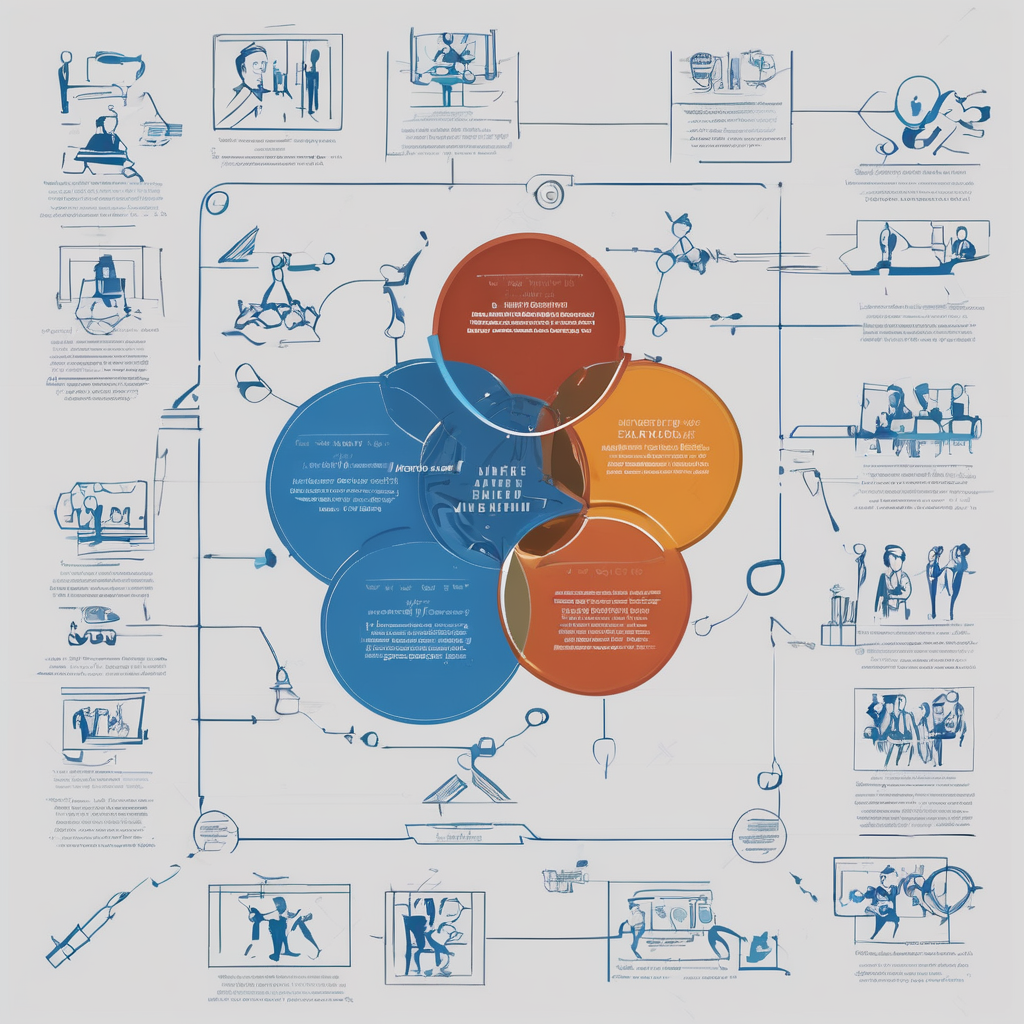Launching an innovative elder care tech firm in the UK requires a thorough understanding of both the market and the unique needs of seniors. As the population ages, there’s a growing demand for solutions that enhance independence and quality of life. This guide provides essential insights into navigating the challenges and opportunities in elder care technology. From identifying key trends to securing funding, discover practical strategies to ensure your venture not only thrives but also makes a meaningful impact.
Understanding the Elder Care Tech Landscape
The elder care technology sector in the UK is undergoing significant transformation, driven by various market trends and industry analysis. As the population ages, there is an increasing demand for innovative solutions that enhance the quality of care for the elderly. This has led to a surge in the development of technologies aimed at improving health outcomes, safety, and overall well-being.
This might interest you : Essential Guidelines for Launching Your Organic Vegetable Farm in the UK: A Comprehensive Setup Checklist
Current technology trends impacting elder care include the integration of artificial intelligence, telehealth services, and wearable devices. These advancements offer promising opportunities for remote monitoring and personalised care, allowing caregivers to better manage the health and safety of older adults. AI-powered systems can predict health risks and provide timely interventions, while telehealth services facilitate access to healthcare professionals without the need for physical visits.
However, the sector also faces key challenges. One major hurdle is ensuring that these technologies are accessible and user-friendly for the elderly, who may not be familiar with digital tools. Additionally, privacy concerns and data security remain critical issues that need addressing to build trust among users.
In parallel : Establishing a UK Virtual Reality Gaming Company: A Guide to Complying with Age-Appropriate Content Standards
Opportunities in the market are vast, with potential for growth in areas such as smart home technologies and robotic assistance. These innovations promise to enhance independence and improve the quality of life for the elderly, making the elder care technology landscape an exciting space to watch.
Essential Startup Guidelines
Embarking on the startup process in the elder care tech industry requires a well-structured approach to ensure success. A crucial initial step is developing a robust business plan. This plan should outline your vision, mission, and objectives, providing a roadmap for your entrepreneurial journey. It should include detailed financial projections, marketing strategies, and a comprehensive analysis of the competitive landscape.
Identifying your target demographics is another vital component. Understanding the specific needs and challenges of the elderly population will help tailor your offerings to meet these demands effectively. Conducting market research can provide insights into user needs, preferences, and potential barriers to technology adoption. This knowledge is essential for designing solutions that resonate with your audience.
Building a Minimum Viable Product (MVP) is a strategic move in the startup process. An MVP allows you to test your concept with minimal resources, gathering valuable feedback from early adopters. In the context of elder care tech, an MVP could involve developing a basic version of a wearable device or a simplified telehealth platform. This approach enables you to refine your product based on real-world user interactions, ensuring it addresses the core needs of the elderly effectively before a full-scale launch.
Legal and Regulatory Requirements
Navigating the regulations and compliance landscape is crucial for startups in the elder care technology sector. The UK has specific elder care laws designed to ensure the safety and efficacy of services provided to older adults. Understanding these legal frameworks is essential for any business operating in this space.
One of the primary considerations is adherence to data protection laws, particularly the General Data Protection Regulation (GDPR). This regulation mandates that personal data must be processed lawfully, transparently, and for a specified purpose. For elder care technology, this means implementing robust security measures to protect sensitive health information and ensuring user consent is obtained before data collection.
In addition to data protection, businesses must also be aware of licensing and accreditation requirements. Elder care services often need to comply with standards set by regulatory bodies such as the Care Quality Commission (CQC). These standards are in place to ensure high-quality care is delivered consistently and safely.
Key points for startups include:
- Ensuring compliance with GDPR to protect user data.
- Obtaining necessary licenses and accreditations for elder care services.
- Regularly reviewing regulatory changes to stay informed and compliant.
By prioritising these aspects, businesses can build trust and credibility with their users.
Funding Options for Elder Care Tech Startups
Securing funding sources is a pivotal step for elder care tech startups aiming to innovate and expand. Various avenues exist, including venture capital, angel investors, and grants, each offering distinct advantages.
Venture capital is a popular choice for startups seeking substantial investment. These firms provide not only financial support but also strategic guidance and industry connections. However, they often demand equity in return, which can dilute ownership. Angel investors, on the other hand, are typically individuals or groups interested in supporting early-stage ventures. They offer more flexible terms compared to venture capitalists, making them an attractive option for startups prioritising control over rapid scaling.
Grants present a non-dilutive funding alternative. These are often provided by government bodies or non-profit organisations and do not require repayment or equity exchange. However, securing grants can be competitive, necessitating a well-prepared application highlighting the project’s potential impact.
When pitching to investors, emphasise the unique value proposition of your elder care tech solution. Clearly articulate how it addresses specific challenges within the sector. Engaging storytelling and demonstrating a thorough understanding of market needs can enhance your pitch’s effectiveness.
Exploring government support programs can also yield additional funding opportunities. These initiatives often aim to foster innovation and economic growth, providing financial assistance and resources to tech startups.
Innovation and Product Development Strategies
In the dynamic field of elder care technology, product development and innovation are key to staying ahead. Identifying gaps in the market is crucial for creating effective technology solutions. By closely examining the current offerings, startups can pinpoint areas lacking adequate support and address unmet needs. This involves thorough market research and trend analysis to discover opportunities for innovation.
Collaboration with healthcare professionals is invaluable in the product development process. Their insights into patient care and operational challenges provide a deeper understanding of the necessary features and functionalities. This partnership ensures that technology solutions are not only innovative but also practical and user-friendly for both caregivers and the elderly.
Utilizing user feedback is essential for iterative development. Engaging with end-users allows startups to refine their products based on real-world experiences and preferences. This feedback loop helps in adjusting features, improving usability, and enhancing overall satisfaction. By prioritising user input, companies can ensure their innovations truly resonate with their target audience.
To foster successful product development, startups should focus on:
- Conducting comprehensive market analysis.
- Building strong collaborations with healthcare experts.
- Continuously integrating user feedback into the development cycle.
This strategic approach will drive meaningful innovation and deliver impactful technology solutions in the elder care sector.
Case Studies and Success Stories
Exploring case studies of successful elder care tech firms in the UK provides valuable insights into effective business models and strategies. These examples highlight how innovative approaches can address the unique challenges of elder care, offering lessons for emerging startups.
One notable successful startup is Birdie, a company that leverages technology to enhance home care services. Their platform integrates with wearable devices to monitor health indicators, providing real-time data to caregivers. This approach not only improves care quality but also optimises resource allocation, demonstrating the power of data-driven solutions.
Another industry example is Cera, which has developed an AI-powered platform to predict health risks and manage care plans. Their success underscores the importance of combining technology with personalised care, enabling more proactive and efficient service delivery.
Lessons learned from these industry examples include the significance of user-centric design and the integration of AI for predictive analytics. Startups can apply these insights by focusing on creating intuitive interfaces and leveraging data to anticipate and address the needs of the elderly.
By studying these successful models, new ventures can adopt proven strategies, such as prioritising user experience and harnessing technology for personalised care, to carve out a niche in the elder care tech landscape.






